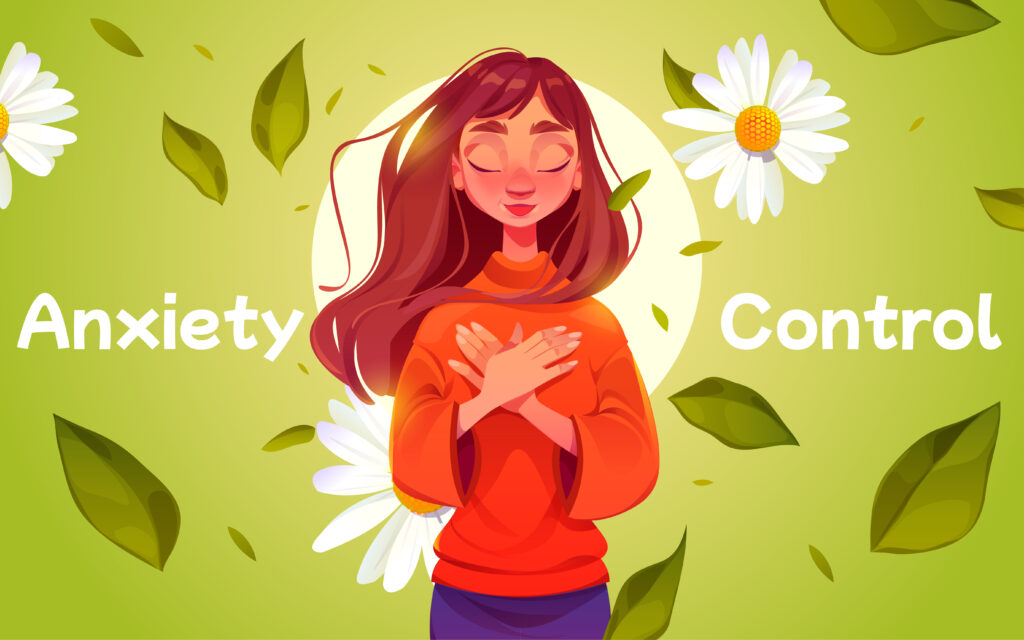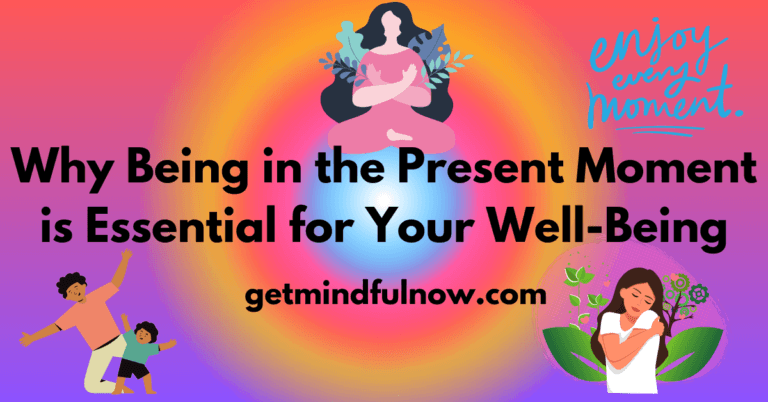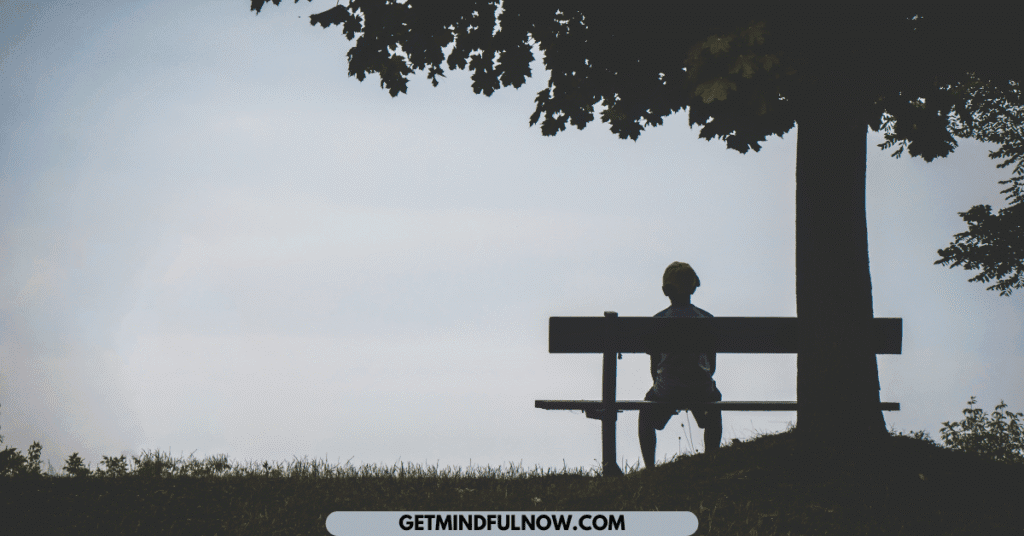In a fast-paced world filled with distractions, the simple yet profound act of being present can seem elusive. Yet, living in the present moment is crucial for our mental, emotional, and even physical well-being. This blog explores why being in the present moment is so important, drawing insights from transformative teachings that emphasize the power of now. It integrates practical advice with personal experiences to provide a comprehensive guide to cultivating present-moment awareness.
Understanding the Power of the Present Moment
The present moment is where life truly happens. It’s the only point in time where we can experience life directly, unfiltered by memories of the past or worries about the future.
The Science of the Present Moment
Modern neuroscience has begun to uncover the profound impact of mindfulness on the brain. Studies show that mindfulness practices increase grey matter density in the brain, particularly in areas associated with learning, memory, and emotional regulation. This is not just theoretical; being present physically changes the brain.
Mindfulness and its Impact on the Brain
Mindfulness, or the practice of bringing one’s attention to the present moment, has been linked to reduced stress, improved concentration, and better emotional health. By focusing on the present, we can rewire our brains to be more resilient, more creative, and less reactive.
The Connection Between Thought and Reality
Thoughts as Energy
Every thought we think carries a specific vibrational frequency. When we dwell in the past or project into the future, our energy is scattered, making it difficult to focus or manifest the reality we desire. But by anchoring ourselves in the present, we align our thoughts and energy, allowing us to create our desired reality more effectively.
The greatest weapon against stress is our ability to choose one thouht over another. ~William James
The Quantum Field and Consciousness
The quantum field theory suggests that everything in the universe is connected by an invisible field of energy, and our thoughts are an active part of this field. When we are fully present, we tap into this field and become co-creators of our reality.
Creating Your Reality from the Now
Our reality is not fixed; it is continuously being shaped by our thoughts and perceptions. By focusing our awareness on the present moment, we can consciously direct our thoughts and emotions to create a reality that aligns with our true desires.
Letting Go of the Past and Future
The Trap of Living in the Past
Holding on to past experiences, especially negative ones, can keep us stuck in old patterns and prevent us from moving forward. The brain becomes wired to relive past experiences, making it difficult to live in the present.
Anxiety About the Future
Worrying about the future is another common pitfall that pulls us out of the present moment. This anxiety often stems from a fear of the unknown and a desire to control outcomes. However, living in the present allows us to trust the process of life and reduces unnecessary stress.
Releasing Emotional Blocks through Presence
Emotional blocks often arise from past traumas or future anxieties. By bringing awareness to the present moment, we can begin to dissolve these blocks, allowing for emotional healing and growth.
Where you place your attention is where your energy flows. Emotions are energy in motion, and when we constantly dwell on past memories of bad experiences, we’re channeling our current energy into something that no longer exists—the past. While it’s important not to suppress negative emotions, we can address them by staying present.
For example, if something happens that makes you want to cry, feel sad, or experience betrayal, it’s crucial to fully feel those emotions in the present moment. Allow yourself to experience them completely until they naturally subside or reveal a valuable lesson.
What often happens is that we resist feeling negative emotions when they arise, repressing them instead. Later, we find ourselves revisiting and ruminating on those emotions long after the moment has passed.
Personal Transformation Through Present-Moment Awareness
Becoming Aware of Your Emotional State
Awareness is the first step to change. By tuning into the present moment, we become more aware of our emotional states, allowing us to address and process them rather than being controlled by them.
Breaking Old Patterns with Present Awareness
Old habits and patterns operate unconsciously. When we bring our full attention to the present, we disrupt these patterns and create space for new, healthier behaviors to emerge.
Aligning with Your Inner Potential
Tapping into Intuition
Being present enhances our ability to tap into our intuition, the inner guidance that often goes unnoticed in the noise of daily life. This connection allows us to make decisions that are aligned with our true self.
I watched a reel by Danny Morel on the topic of trusting your gut. He explained that, like a GPS, you receive the most accurate and fruitful information when you tap into your intuitive power. I asked him how I could tell if it’s truly my gut feeling or if I’m just second-guessing or thinking negatively when something feels off. He responded that by cultivating the habit of being present every day, you’ll naturally stop overthinking and start sensing the true energy—whether good or bad—of a situation or person.
This makes sense because when we are constantly preoccupied with thoughts about the past or future, it’s difficult to access our intuition.
The Role of Gratitude in Present-Moment Awareness
Gratitude is a powerful practice that shifts our focus to the present moment. By cultivating gratitude, we anchor ourselves in the now and open ourselves to the abundance of life.
We are often programmed to feel grateful only when we receive something tangible. However, when we begin to cultivate gratitude by being fully present in the moment, our body, acting as the subconscious mind, believes we are continually receiving blessings. This mindset keeps us fulfilled and open to new opportunities, allowing us to attract them without a doubt.
Recognizing Synchronicities
Synchronicities, or meaningful coincidences, are often signs that we are aligned with our true path. These events become more apparent when we are fully present, as we are more attuned to the subtle energies of the universe. Whenever you notice the time is 12:12, 1:11, or 5:55 on your clock or phone, you can use it as a reminder that something great is on its way and that you are on the right path.
Practical Steps to Cultivate Present-Moment Awareness
Mindful Breathing Techniques
One of the simplest ways to bring yourself into the present moment is through mindful breathing. Techniques such as deep diaphragmatic breathing or the 4-7-8 technique can help anchor your awareness in the now.
You can check throughout the day whether you are present or not. If you feel yourself losing focus, gently bring your awareness back. By repeatedly doing this, you’ll train your mind and eventually build a habit. Remember, nothing new is easy the first time you try it, but with consistency, you can succeed.
Meditation Practices to Anchor in the Now
Meditation is a powerful tool for cultivating present-moment awareness. Practices like mindfulness meditation, body scan, or guided imagery can help you develop the habit of staying present.
Meditation offers significant benefits for both the brain and body, as supported by scientific research. A study published in NeuroReport (2005) found that meditation practice is associated with increased cortical thickness in brain regions linked to executive functions and sensory processing, suggesting that meditation can lead to structural changes that enhance cognitive functions and emotional regulation.

Additionally, research published in the International Journal of Psychiatry in Medicine (2000) highlighted that mindfulness-based stress reduction (MBSR) can significantly reduce anxiety, depression, and stress in patients with cancer, thereby improving overall quality of life and physical health. These studies underscore meditation’s powerful impact on both mental and physical well-being.
Daily Practices to Stay Grounded
Incorporating simple, mindful activities into your daily routine, such as mindful walking, eating, or even washing dishes, can help you stay grounded in the present moment.
Another way to practice being more present is by completing tasks with a bit more effort than originally required. This will help you stay present, as doing more demands greater focus and attention. For example, if you were supposed to read for 20 minutes, try extending it to 25 or 30 minutes. This practice will help strengthen your will to stay present.
When eating your meal, try to fully experience the texture of the food. Reflect on how many people and situations were involved in preparing it before it reached your plate. Pay attention to how it dissolves in your mouth, how it will nourish your body, and allow yourself to feel good about it.
Embracing the Unknown: Living Beyond Predictability
Trusting the Process
Living in the present often requires us to let go of our need for certainty and control. By trusting the process of life, we open ourselves to new possibilities and experiences that we might otherwise miss.
Surrendering Control
Letting go of the need to control every outcome is essential for living in the present. This surrender allows us to flow with life, reducing stress and increasing our overall sense of peace.
How Present-Moment Awareness Transforms Relationships
Deepening Connection with Others
Being fully present in our interactions with others allows for deeper, more authentic connections. This presence fosters trust, empathy, and understanding, which are the foundation of strong relationships.
Improving Communication Through Presence
When we listen with full attention, without thinking about what we will say next, we communicate more effectively. This presence in conversation allows us to respond more thoughtfully and compassionately.
Personal Insights: My Journey with Present-Moment Awareness
Early Struggles with Being Present
Initially, I found it challenging to stay present when I started my journey of self-awareness. My mind was constantly racing, filled with worries about the future or regrets about the past because that’s how I was trained, and it wouldn’t be wrong to say that most people are conditioned in the same way… However, with consistent practice, I began to experience moments of true presence, where everything seemed to click into place.
But let me tell you, this journey wasn’t smooth. I had to revisit the basics up to 20 times a day before I began to experience even a few hours of being present.
I used a phrase from my teacher to check myself: “When you’re not present, you’re running a program.” Our conscious mind represents only 5% of our mental processes, while our autonomic nervous system (subconscious mind) accounts for 95%. This is why our bodies can perform over 100,000 functions without our conscious awareness.
Transformative Experiences
Over time, these moments of presence became more frequent, leading to profound changes in my life. I noticed a shift in how I interacted with the world, feeling more grounded, peaceful, and aligned with my true self.
It doesn’t mean that I stopped experiencing challenging times in my life. No transformative journey makes us immune to life’s adversities. Instead, we become more resilient, and these challenges no longer disrupt our state of being for long. We adapt to them, much like a skilled surfer navigates the big waves of the ocean.
Life Changes Through Consistent Practice
As I continued to practice present-moment awareness, I noticed significant improvements in my relationships, health, and overall well-being. This journey has taught me that being present is not just a practice but a way of life.
Common Challenges and How to Overcome Them
Dealing with Distractions
Distractions are a major challenge to staying present. However, by practicing mindfulness and setting clear intentions, it becomes easier to bring your focus back to the present moment.
Overcoming Resistance to Change
Change can be uncomfortable, and there is often resistance to letting go of old habits. Understanding that this resistance is a natural part of the process can help you move through it with greater ease.
Handling Relapses into Old Habits
Relapses are a normal part of the journey. When they happen, it’s important to practice self-compassion and gently bring your awareness back to the present moment without judgment.
When you face a relapse, you can ask yourself, “What if this situation occurs again? How can I react better or stay present instead of losing myself?” Then, mentally rehearse the situation with your desired outcome. We often forget while learning new skill until we stop forgetting. Consistency is key.
The Future Self: Becoming Who You Want to Be by Being Present Now
Visualizing Your Desired Future
While living in the present is crucial, it’s also important to have a vision for your future. By visualizing your desired future while staying grounded in the present, you can align your actions with your long-term goals.
The Paradox of Effortless Change
True change happens effortlessly when we are fully present. By letting go of the need to force outcomes, we allow change to occur naturally, in alignment with our true self.
Practical Tips to Start Living in the Present Moment
Setting Intentions Daily
Begin each day by setting an intention to stay present. This simple practice can help you remain focused and grounded throughout the day.
Creating a Daily Ritual for Mindfulness
Incorporate a daily ritual that promotes mindfulness, such as morning meditation, journaling, or mindful movement. This practice will help reinforce your commitment to living in the present moment.
Benefits of Living in the Present Moment
Enhanced Mental Clarity
When we are present, our minds are clearer and more focused, enabling us to make better decisions and think more creatively.
Emotional Balance
Living in the present helps us to manage our emotions more effectively, leading to greater emotional stability and resilience.
Improved Physical Health
Studies have shown that mindfulness practices can reduce stress, lower blood pressure, and improve overall physical health by promoting relaxation and reducing the impact of chronic stress.
FAQs about Present-Moment Awareness
What does it mean to live in the present moment?
Living in the present moment means fully experiencing life as it happens, without being distracted by past memories or future worries. It involves being mindful of your thoughts, emotions, and surroundings.
How does being present improve mental health?
Being present helps reduce stress, anxiety, and depression by keeping the mind focused on the here and now, rather than getting caught up in negative thought patterns.
Why is it difficult to stay present?
Staying present can be challenging because the mind naturally tends to wander, especially when we are stressed or overwhelmed. However, with practice, it becomes easier to maintain present-moment awareness.
What are some simple ways to practice being present?
Simple practices like mindful breathing, meditation, and paying attention to your senses can help you cultivate present-moment awareness in your daily life.
Can being present improve my relationships?
Yes, being present can significantly improve your relationships by fostering deeper connections, better communication, and greater empathy.
How can I make present-moment awareness a habit?
Consistency is key to making present-moment awareness a habit. Start with small, daily practices and gradually build up to longer periods of mindfulness.
Conclusion: The Ongoing Journey of Living in the Now
Living in the present moment is not a destination but a lifelong journey. It requires consistent practice and a willingness to let go of old habits and thought patterns. However, the benefits of living in the now are profound, leading to greater peace, clarity, and fulfillment. As you continue on this path, you will discover that being present is the key to unlocking your true potential and living a life of purpose and joy.









Nice post. I used to be checking constantly this blog and I’m impressed!
Very useful information specially the ultimate part of being present 🙂 I take care of such information a lot.
I was looking for this certain info for a long time.
Thank you and good luck.
Thanks, I appreciate your time, and I hope it has helped in someway.
This post beautifully captures the importance of being present. I’ve often found myself lost in thoughts about the past or future, so your insights on how mindfulness can enhance well-being really resonated with me. I’m inspired to make more of an effort to stay in the moment and appreciate life as it happens.
Thank you so much for sharing this wonderful post with us.
Nice i really enjoyed reading your blogs. Keep on posting. Thanks
Hi! This post couldn’t be written any better! Reading this post reminds me of my previous room mate! He always kept talking about this. I will forward this write-up to him. Fairly certain he will have a good read. Many thanks for sharing!
Pretty! This was an incredibly wonderful post. Thank you for providing these details.
It’s arduous to find knowledgeable people on this matter, but you sound like you understand what you’re talking about! Thanks